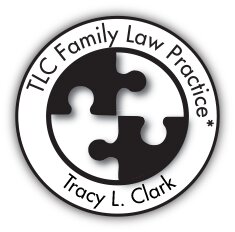Best Divorce & Separation Lawyers in Prince George
Share your needs with us, get contacted by law firms.
Free. Takes 2 min.
Free Guide to Hiring a Family Lawyer
List of the best lawyers in Prince George, Canada
About Divorce & Separation Law in Prince George, Canada
Divorce and separation in Prince George, Canada, are governed by a combination of federal and provincial laws. The Divorce Act is a federal law that applies across Canada, while the Family Law Act of British Columbia provides additional regulations specific to the province. Divorce marks the legal end of a marriage, allowing former spouses to remarry legally, while separation refers to the process where a married couple decides to live apart without legally ending their marriage. Seeking clarity and understanding regarding these processes is crucial as they involve significant emotional, financial, and legal changes.
Why You May Need a Lawyer
While some couples may navigate divorce or separation without legal help, there are common situations where legal assistance becomes essential:
- When there are disagreements over child custody, support, or visitation rights.
- When there is a significant amount of assets or debts to be divided.
- In cases involving allegations of domestic violence or abuse.
- When drafting a separation agreement to ensure it is legally binding and fair.
- If one party has legal representation and the other does not, to ensure fair treatment.
Legal advice helps in understanding rights and obligations, ensuring a fair outcome, and complying with relevant laws.
Local Laws Overview
In British Columbia, the Family Law Act, along with the Divorce Act, provides the framework for addressing issues related to divorce and separation. Key aspects relevant to Prince George include:
- Division of Property: The Family Law Act dictates how family property and debts should be divided fairly between spouses.
- Child Custody and Support: Custody arrangements are based on the best interests of the child and the Federal Child Support Guidelines determine support obligations.
- Spousal Support: This may be granted considering various factors like length of marriage and roles during the marriage.
- Family Dispute Resolution: Encourages alternative dispute resolution methods like mediation before approaching court intervention.
Frequently Asked Questions
What are the grounds for divorce in Prince George?
Canada recognizes "no-fault" divorce, meaning spouses do not need to prove wrongdoing. Grounds include separation for at least one year, adultery, or mental/physical cruelty.
How is child custody determined?
Court considers the best interests of the child, including their needs and the ability of each parent to meet them, ensuring a safe environment.
Is there a residency requirement for filing a divorce?
Yes, either spouse must have lived in British Columbia for at least one year immediately before applying for divorce.
Can property be shared differently than 50/50?
While equal division is the starting point, courts can deviate based on fairness, considering contributions and needs.
What happens if my spouse does not follow a court-ordered support arrangement?
Enforcement measures can be taken through the Family Maintenance Enforcement Program to collect support payments.
How do I legally separate from my spouse?
Legally separation does not require court approval; however, it’s advisable to have a separation agreement outlining the terms.
What is the role of mediation in divorce proceedings?
Mediation offers a collaborative environment to resolve disputes without litigation, aiming for a mutually acceptable agreement.
How does spousal support get calculated?
Factors include the length of the marriage, roles during marriage, and each spouse’s resources and needs, guided by spousal support advisory guidelines.
What if I am not satisfied with a court decision?
You can appeal a court decision, but strict timelines and grounds for appeal must be adhered to.
Can common-law partners claim spousal support?
Yes, in British Columbia, common-law partners may claim spousal support if they have lived together for at least two years or have a child together.
Additional Resources
For further assistance in navigating divorce and separation laws, consider these resources:
- Legal Aid BC: Offers legal information, advice, and representation for those who qualify financially.
- Family Justice Centres: Provide services such as mediation and legal information.
- Family LawLINE: Offers brief legal advice over the phone.
- BC Family Maintenance Enforcement Program: Assists in enforcing support orders.
Next Steps
If you require legal assistance regarding divorce or separation, consider these steps:
- Contact a family law lawyer in Prince George to discuss your situation.
- Consult with mediation services if suitable for your case.
- Visit a Family Justice Centre for preliminary information and advice.
- Review your financial situation and gather necessary documents related to your marriage or partnership.
Taking these steps ensures a well-informed approach in addressing your legal needs, facilitating a smoother transition through this challenging life event.
Lawzana helps you find the best lawyers and law firms in Prince George through a curated and pre-screened list of qualified legal professionals. Our platform offers rankings and detailed profiles of attorneys and law firms, allowing you to compare based on practice areas, including Divorce & Separation, experience, and client feedback.
Each profile includes a description of the firm's areas of practice, client reviews, team members and partners, year of establishment, spoken languages, office locations, contact information, social media presence, and any published articles or resources. Most firms on our platform speak English and are experienced in both local and international legal matters.
Get a quote from top-rated law firms in Prince George, Canada — quickly, securely, and without unnecessary hassle.
Disclaimer:
The information provided on this page is for general informational purposes only and does not constitute legal advice. While we strive to ensure the accuracy and relevance of the content, legal information may change over time, and interpretations of the law can vary. You should always consult with a qualified legal professional for advice specific to your situation.
We disclaim all liability for actions taken or not taken based on the content of this page. If you believe any information is incorrect or outdated, please contact us, and we will review and update it where appropriate.









